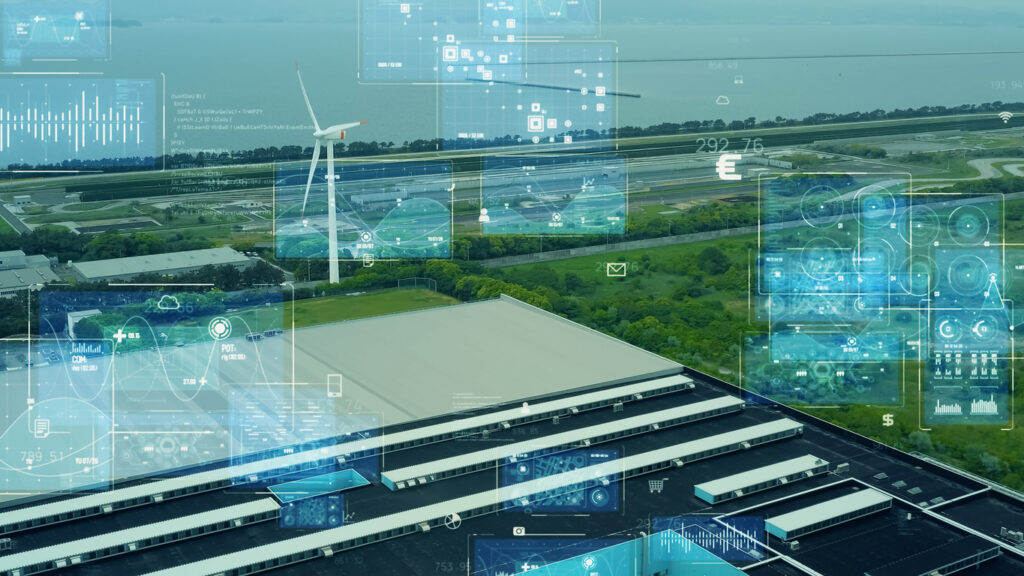When the Labour Party came to power in July 2024, one of its key aims was to make the UK a ‘world leader’ in artificial intelligence (AI). As part of this ambition, the government pledged £25 billion to support a range of measures including funding for the development of new data centres, the removal of planning obstacles for their construction, and the creation of a National Data Library.
The subsequent launch of the AI Energy Council, made up of key figures in the energy and tech sectors, not only demonstrates the government’s commitment to this plan, but a cross-sector approach to its implementation. Following its inaugural meeting, the Council announced five key priorities for 2025 which has set a groundbreaking tone for the changes to come and has the sector anticipating a technological revolution – but what challenges does the sector face, and how can it respond?
Reliable energy for data-driven growth
Two of the Council’s priorities are to ensure that the grid can effectively support the increased use of AI reliably, and to aid tech companies in powering the infrastructure with renewable energy or in a sustainable way.
Data centres demand a constant, uninterrupted power supply, meaning a reliable grid connection is essential. While the UK has excessive renewable energy sources, no single source offers complete energy security on its own. In addition, consumers are becoming increasingly wary of clean energy ‘offsets’ (the process of buying certificates giving credit for renewable generation), seeing these as disingenuous, or worse, greenwashing. This is suppressing voluntary markets for certificates that align with particular generation times as a result.
Recently, Amazon Web Services stated that the UK needs more nuclear energy to power data centres. This is a stable and zero carbon option for powering the data centres that are driving AI; however it does come with its own unresolved issues, in particular how expensive it is. This issue may be addressed by the UK’s ongoing small modular reactor technology selection competition, but only in the medium term. There is no simple solution to the ‘reliable v. renewable’ conundrum, and so many companies are choosing to prioritise a guaranteed connection over green credentials.
Grid connection delays and the gas turbine dilemma
To counter unreliable supply, many operators install gas turbines as a reliable backup, to be used as a peaking plant giving short term boosts to the network when power is scarce, or even as a primary power source. While effective and cost-efficient, this solution doesn’t align with the AI Energy Council’s sustainability goals. This sort of solution is partially due to the difficulty in obtaining suitable grid connections.
Although the UK has one of the most reliable electricity systems in the world, a backlog of projects, which could be providing power to the data centres, are not progressing through the system quickly enough. As a result, the National Energy System Operator (NESO) has had to put a freeze on applications to give time to manage the queue. Hopefully this drastic step will help in time, as tackling the grid connection conundrum will be crucial to minimising the use of gas turbines.
The importance of planning and community support
With data centres putting pressure on local resources, selecting the best locations during the proposal stage is crucial. This means collaborating closely with planners and local authorities to ensure developments are aligned with local people’s goals.
Currently, the Council does not include representatives from the planning sector – which may be an oversight. These are vital for ensuring that the data centres have, what’s has been dubbed, a ‘social licence to operate.’ While not a legal or regulatory licence, this concept essentially means that a data centre will need the support and confidence of the local community in order to not face public backlash during the planning or construction process, which would cause the sorts of delays that often plague big projects. The AI Energy Council has been designed to ensure that industries are represented and consulted, the next phase, however, may be winning the hearts and minds of the affected public.
AI for a smarter, greener grid
Another of the Council’s priorities is to support the ‘secure and responsible adoption of AI across the network’, in order to help make the grid both more reliable and able to run on renewable energy sources exclusively.
The AI Energy Council is expected to explore clean energy solutions, including both renewables and nuclear, while providing guidance on how to improve energy efficiency and sustainability in AI-driven data centre infrastructure, particularly regarding water usage. As these centres power everything from AI training models to cloud computing services, their consumption of electricity and water raises important questions about resource management, especially in water stressed areas.
The Council will also focus on ensuring the secure adoption of AI across the UK’s energy network. Representatives from Amazon Web Services (AWS), Google, Microsoft, and Nvidia are expected to participate, sharing insights on developing hyperscale AI data centres that are both energy and water efficient.
Supporting innovation and ethical adoption
AI can also play a key role in enabling smaller companies, which are often at the forefront of green innovation, to understand and comply with regulatory requirements more efficiently. By reducing the administrative burden and lowering costs, AI can improve market access and make sustainable projects more attractive to investors.
AI can also be used to improve the reliability of the grid itself by identifying issues before they cause major incidents – such as the recent outage in the Iberian peninsula – before they happen, giving companies time to solve or mitigate the problem. To maximise these benefits, companies should start thinking about upgrading their systems and investing in employee training, particularly in areas like data management. Energy companies already produce a wealth of data, but if that data is incomplete, erroneous, or not formatted inconsistently the AI is more likely to come up with inaccurate results.
Ethical use is another major consideration. Energy companies should be particularly aware of the word ‘responsible’ in the Council’s aims and companies and should ensure that ethical safeguards are in place before AI’s implementation. For example, where AI is used to bid for certain contracts, it could identify exploits that a human operator would consider ‘unethical’ which might lead to the operator’s disqualification from the marketplace. This is why it’s important for companies to carefully structure their approach to AI to ensure there remains a ‘human in the loop’, or HITL to ensure AI use is secure, ethical by design and complies with antigaming provisions.
Cross-sector collaboration key to success
The formation of the AI Energy Council is a promising step towards building a more advanced and effective energy network in the UK. Its 2025 priorities are ambitious, and the Council will no doubt face significant barriers along the way. However, by utilising cross-sector collaboration and careful planning, there is real potential to transform how the UK powers its AI future.




